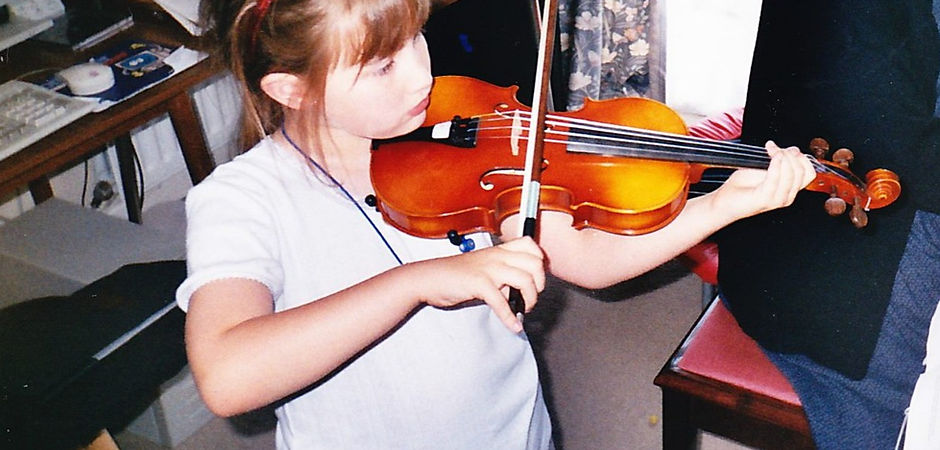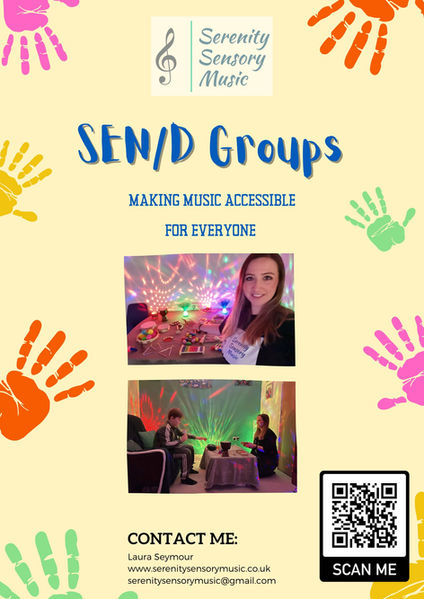Class Information

What is Sensory Music?
A therapeutic approach
Sensory Music is a therapeutic approach that uses the naturally mood-lifting properties of music to help people improve their mental health and overall well-being.
It’s a goal-oriented intervention that may involve:
Making music
Writing and creating songs
Singing
Dancing and moving to music
Listening to music
Discussing and exploring various musical genres
This form of treatment may be helpful for people with depression and anxiety, and it may help improve the quality of life for people with physical health problems.
Anyone can engage in sensory music; you don’t need a background in music to experience its beneficial effects.
Exploring the Basics
Sensory Music Sessions
Through a unique, therapeutic approach to sensory music we will explore a variety of skills:
improvisation
ensemble and solo playing
listening skills
learning how to play a variety of instruments
pitch and rhythms
conducting and leading the music that we create


Making Music Fun!
In each session I emphasise self-exploration and continue to promote the wellbeing of all who attend.
Whether you require time and support to:
develop your musical voice
improve your overall wellbeing
reduce stress and anxiety levels
build confidence
develop communication skills
Sessions are tailored around the individual, to lift your mood or simply enable you totally immerse yourself in the music.
Sensory Music &
Links to Music Therapy
An Active Process
Sensory Music making can be an active process,
where clients play a role in creating music,
or a passive one that involves listening or responding to music.
Some sessions may use a combined approach that involves
both active and passive interactions with music.


Services Available

What will the workshops look like?
Through carefully planned sessions we will use music as a tool, enabling us to explore a wide spectrum of experiences.
Using:
visual prompts,
images & PECs symbols,
Makaton signing,
simple colour coded notation
and musical cues,
I will engage you in a musical journey, using the senses to expand your experiences.
Serenity Sensory Music workshops can evolve around an individual or group to best support their needs.

We will use:
We will be exploring the senses using:
gentle lighting,
imagery, photography and video clips,
calming smells,
bubbles,
and a selection of carefully chosen tactile instruments,
so that these sensory workshops can evolve around the individual or group to best support their needs.
What Sensory Music Can Help With
Sensory Music may be helpful for people experiencing:
Anxiety or stress
Cardiac conditions
Chronic pain
Diabetes
Difficulties with verbal and nonverbal communication
Feelings of low self-esteem
Headaches
Negative mood
Problems related to childbirth
Rehabilitation after an injury or medical procedure
Respiration problems
Surgery-related issues
Traumatic brain injury (TBI)
Trouble with movement or coordination


Research
Research also suggests that sensory music can be helpful for people with:
Stroke and neurological disorders
Therapeutic sensory music is also often used to help children and adolescents:
Develop their identities
Improve their communication skills
Learn to regulate their emotions
Recover from trauma
Self-reflect

Benefits of Sensory Music
Sensory music sessions can be highly personalised, making it suitable for people of any age—even very young children can benefit. It’s also versatile and offers benefits for people with a variety of musical experience levels and with different mental or physical health challenges.
Engaging with music can:
Activate regions of the brain that influence things like memory, emotions, movement, sensory relay, some involuntary functions, decision-making, and reward
Fulfil social needs for older adults in group settings
Lower heart rate and blood pressure
Relax muscle tension
Release endorphins
Relieve stress and encourage feelings of calm
Strengthen motor skills and improve communication for children and young adults who have developmental and/or learning disabilities
Research has also shown that music can have a powerful effect on people with dementia and other memory-related disorders.
Overall, sensory music making can increase positive feelings, like:
Calmness
Euphoria
Confidence and empowerment
Emotional intimacy
Techniques
When you begin working with me at Serenity Sensory Music, we will start by identifying your goals. For example, if you’re experiencing depression, you may hope to use music to naturally improve your mood and increase your happiness. You may also want to try applying these therapeutic approaches to other symptoms of depression like anxiety, insomnia, or trouble focusing.
During a sensory music session, you may listen to different genres of music, play a musical instrument, or even compose your own songs. You may be asked to sing or dance. I may encourage you to improvise, or may have a set structure for you to follow.
You may be asked to tune in to your emotions as you perform these tasks or to allow your feelings to direct your actions. For example, if you are angry, you might play or sing loud, fast, and dissonant chords.
You may also use music to explore ways to change how you feel. If you express anger or stress, your music therapist might respond by having you listen to or create music with slow, soft, soothing tones.

Themes include:
Each session we will embark on a journey which will aim to enhance your understanding of the world around you, and help you to relax and enjoy the musical experience.

Effectiveness
The uses and benefits of therapeutic music sessions have been researched for decades.
Key findings from clinical studies have shown that music therapy may be helpful for people with depression and anxiety, sleep disorders, and even cancer.
On its own, sensory music sessions and therapeutic music making may not constitute adequate treatment for medical conditions, including mental health disorders. However, when combined with medication, psychotherapy, and other interventions, it can be a valuable component of a treatment plan.
If you have difficulty hearing, wear a hearing aid, or have a hearing implant, you should talk with your audiologist before undergoing music therapy to ensure that it’s safe for you.
Similarly, sessions that incorporates movement or dancing may not be a good fit if you’re experiencing pain, illness, injury, or a physical condition that makes it difficult to exercise. So we can discuss any symptoms that you are experiencing before exploring things further.
There are a variety of approaches established in music therapy, including:
Analytical music therapy:
Analytical music therapy encourages you to use an improvised, musical "dialogue" through singing or playing an instrument to express your unconscious thoughts, which you can reflect on and discuss with your therapist afterward.
Benenzon music therapy:
This format combines some concepts of psychoanalysis with the process of making music. Benenzon music therapy includes the search for your "musical sound identity," which describes the external sounds that most closely match your internal psychological state.
Cognitive behavioural music therapy (CBMT):
This approach combines cognitive behavioural therapy (CBT) with music. In CBMT, music is used to reinforce some behaviours and modify others. This approach is structured, not improvisational, and may include listening to music, dancing, singing, or playing an instrument.
Community music therapy:
This format is focused on using music as a way to facilitate change on the community level. It’s done in a group setting and requires a high level of engagement from each member.
Nordoff-Robbins music therapy:
Also called creative music therapy, this method involves playing an instrument (often a cymbal or drum) while the therapist accompanies using another instrument. The improvisational process uses music as a way to help enable self-expression.
The Bonny method of guided imagery and music (GIM):
This form of therapy uses classical music as a way to stimulate the imagination. In this method, you explain the feelings, sensations, memories, and imagery you experience while listening to the music.
Sessions at
Serenity Sensory Room
Now offering 1:1 individual sessions and family group workshops at The Serenity Sensory Room, at my home in Westfield, Radstock.

Explore:
These sensory music sessions allow individuals to feel a huge variety of emotions in a safe and structured space.
The music that we create together can help individuals to heal and work through trauma, practice turn taking, learn to work with others and communicate without using language.

Contact me today to find out more about my current sessions and workshops.

"Music is the universal language of mankind."










































